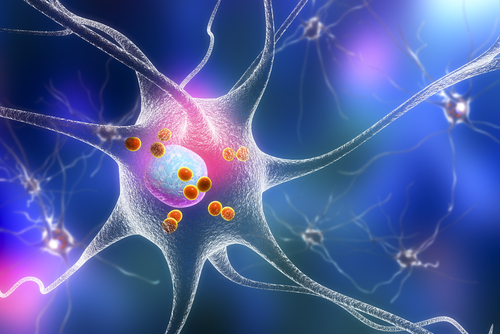AC Immune, UPenn Partner to Study How TDP-43 Protein Clumps Inside Nerve Cells

Biopharma AC Immune has entered a research collaboration with scientists at the Perelman School of Medicine at the University of Pennsylvania (UPenn) to uncover why TDP-43 misshapes and accumulates in the nervous system of some people, like those with amyotrophic lateral sclerosis (ALS).
The collaborative project plans to delve into the mechanisms behind toxic TDP-3 accumulation inside nerve cells, hoping to find targets for new therapies and better ways of diagnosing such diseases.
Like other neurodegenerative diseases, such as Alzheimer’s and Parkinson’s, nerve cells in people with ALS and frontotemporal dementia (FTD) accumulate toxic aggregates of certain proteins that eventually kill the cells. In some with these diseases, these clumps are made of TDP-43, a protein found in many human tissues that normally stabilizes RNA molecules — DNA ‘blueprints’ that serve as intermediaries for the production of proteins.
Accumulation of TDP-43 inside diseased nerve cells is a hallmark of ALS and FTD. The clumps occur in patients as a result of certain genetic mutations (e.g. C9orf72, TARDBP), or unknown mutations in other familial cases of these diseases, and in some sporadic cases.
TDP-43 aggregates tend to associate with loss of nerve cells in the brain (atrophy) and the stage of dementia. For this reason, they are considered to be involved in a common mechanism of neurodegeneration and have recently been proposed as therapeutic targets for ALS and FTD.
Under their partnership, AC Immune and Penn researchers will work together to uncover fundamental insights about how toxic forms of TDP-43 spread between nerve cells. Understanding in more depth how this happens is expected to support the development of new therapeutic and diagnostic approaches.
AC Immune will provide a two-year grant to the lab of UPenn researchers John Trojanowski, PhD, MD, and Virginia M.-Y. Lee, PhD. Trojanowski’s research focus is neurodegeneration, and has contributed to the view that disease-related proteins like tau, alpha-synuclein — whose accumulation are believed to be at the root cause of Alzheimer’s and Parkinson’s, respectively — and TDP-43 are co-deposited in most neurodegenerative diseases.
Lee specializes in the study of tau, alpha-synuclein and the amyloid-beta precursor protein, and how they cause disease.
“We are very proud to be working with Penn and Dr. Trojanowski and Dr. Lee, two very well-respected experts in neurodegenerative diseases. The field is still investigating the precise causes of neurodegenerative diseases and how to prevent, treat and even cure them,” Andrea Pfeifer, AC Immune’s CEO, said in a press release.
“Increasing our knowledge of the role of TDP-43 in disease pathology [mechanism] will mark valuable progress in this effort,” Pfeifer added. “AC Immune has generated several antibodies with unique binding profiles to TDP-43, and we are looking forward to results from preclinical proof-of-concept studies in Q3 2019.”






